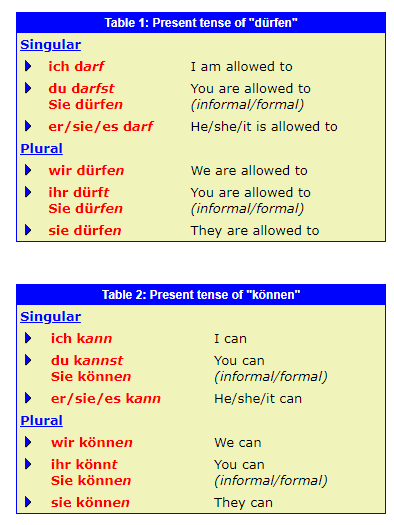The German modal verbs are a group of six verbs which affect the mood of a sentence, approximating to words like "can", "must" and "will" in English. Their combinations with German infinitive and their broad range of usage are discussed in Chapter 8 of this course.
In the present tense, the modal verbs:
have a zero ending on the "er/sie/es" form of the verb, i.e. there is no final -t
have a zero ending on the "ich" form of the verb, i.e. there is no final -e
apply any change to the stem vowel to the "ich" form of the verb, as well as to the "du" and "er/sie/es" forms. (N.B. The modal verb "sollen" does not modify its stem vowel at all.)
 英语
英语 日语
日语 韩语
韩语 法语
法语 西班牙语
西班牙语 意大利语
意大利语 阿拉伯语
阿拉伯语 葡萄牙语
葡萄牙语 越南语
越南语 俄语
俄语 芬兰语
芬兰语 泰语
泰语 丹麦语
丹麦语 对外汉语
对外汉语

